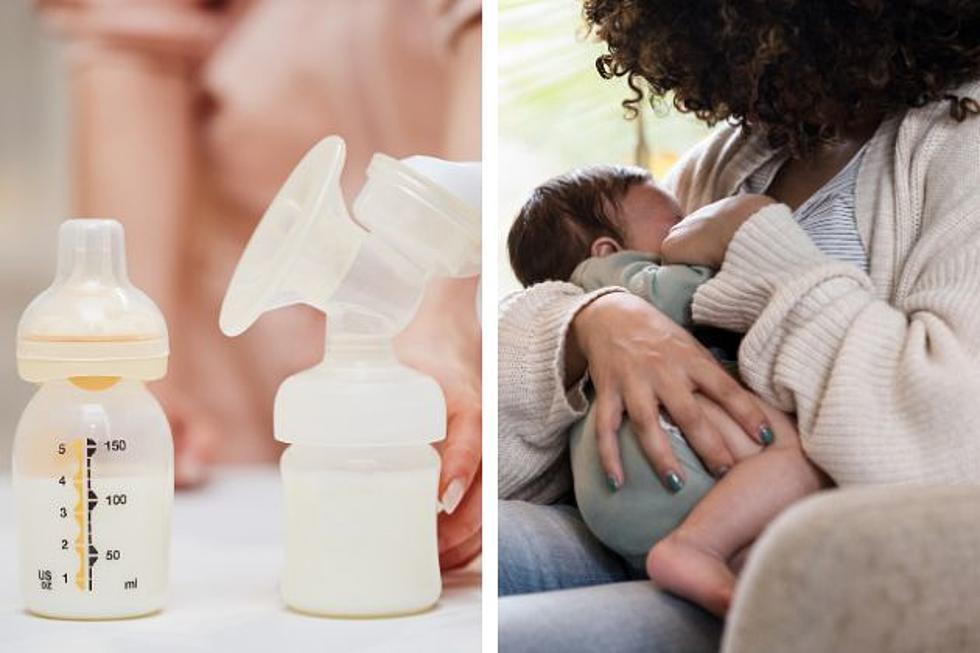
From hospital to office, NJ moms face obstacles trying to breastfeed
Wall Township resident Haley Wells remembers sobbing in her hospital room in 2019 after giving birth to her first child.
The new mom was trying to breastfeed her baby, but it wasn't happening.
"As much as they say it's a natural instinct, it's challenging," Wells said.
It wasn't until an on-site lactation consultant at Monmouth Medical Center came to her bedside that she could get the feeding process going. And she was informed by the staffer about a breastfeeding support group that meets regularly nearby.
Today, Haley is a mother of four girls under the age of 5. She's currently breastfeeding her seven-month-old, and her other three babies were nursed until they were nine to 12 months old.
"They all had their challenges," Wells said.
With each child, Haley attended the support group at the Breastfeeding Wellness Center in Eatontown, for several weeks, until she'd eventually return to work as a nurse.
"Even if it's not your first baby, it's such as good resource to have, just to be around other people in your same shoes," she said.
Hospital systems throughout New Jersey are running in-person and/or virtual support programs for mothers who are struggling with the ins and outs of being the primary source of nutrition for their child.
Do most moms breastfeed?
The American Academy of Pediatrics advises moms to breastfeed their babies for the first six months of life, and then continue for at least two years while introducing solid food, due to related health benefits for both the baby and mother.
But the latest data, according to the U.S. Breastfeeding Committee, show that just about 25% of babies are exclusively breastfeeding at six months of age. And not for a lack of trying — 83.2% of newborns start their lives breastfeeding.
"I find that the majority of moms in New Jersey want to breastfeed when they come into the hospital. But there are barriers — that can be in the community, that can be in the hospital, and it can be returning to work," said Tara Murphy, coordinator of the Breastfeeding Wellness Center.
Many failed attempts to breastfeed, Murphy said, occur because of a lack of knowledge ahead of giving birth. Moms are typically getting their first real information and lessons after having just delivered a child, and that can be overwhelming.
Then mothers leave the hospital and attempt to continue nursing at home, with less hands-on help and perhaps more questions, while battling offbeat sleep patterns. And when excess milk supply isn't handy, there's an added obstacle for mothers to find the right time and spot for feeding their baby while out of the house.
Can I breastfeed in public?
New Jersey law allows a mother to breastfeed "anywhere she has the right to be," in both public and private settings.
Haley, the Monmouth County mother of four, said not every mother is comfortable nursing in public. But once you get over that fear the first time, she said, feeding your child in a park or on a plane, for example, becomes less intimidating.
"No one really prepares you as to what the commitment is," Haley said. "It's definitely not easier than bottle feeding."
In the workplace, companies can not discriminate against workers who breastfeed. Employers are obligated to provide reasonable accommodations for women to pump milk or breastfeed during the work day, but advocates say the definition of "reasonable" appears to differ greatly from workplace to workplace.
Report a correction 👈 | 👉 Contact our newsroom
11 Bad Laundry Habits to Break Immediately
More From 92.7 WOBM








